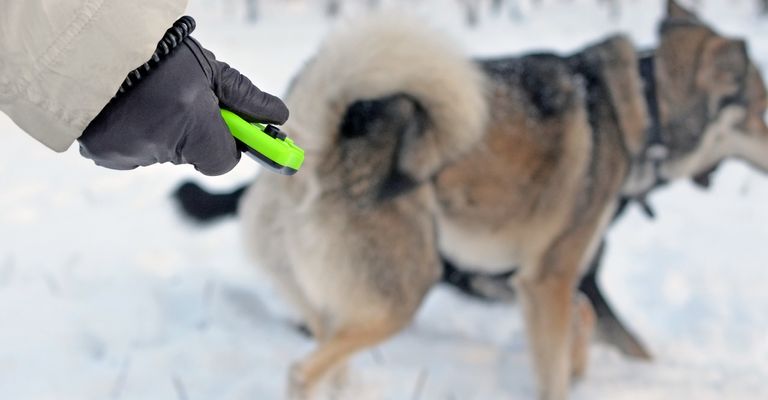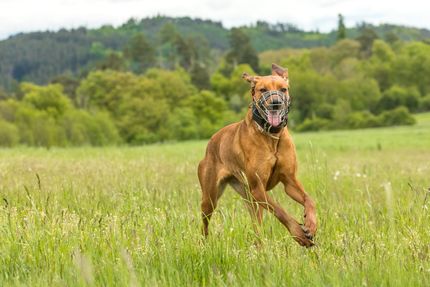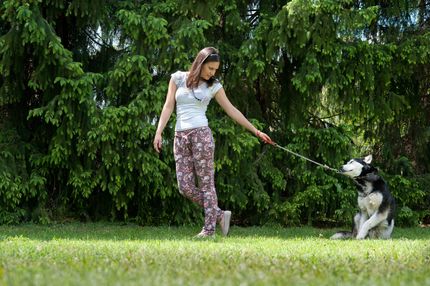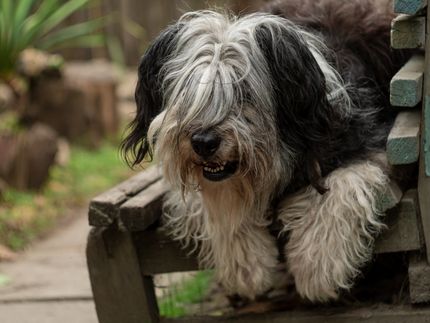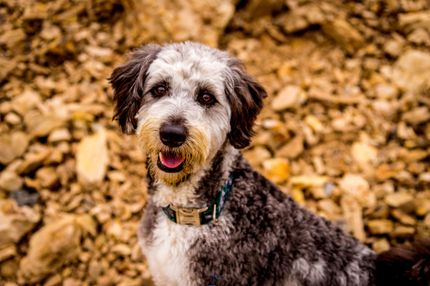Reliable recall is one of the most important commands in dog training. In this article, you'll get a comprehensive guide to making your recall training effective and successful. You'll learn why a reliable recall is so important for your dog, how to start and gradually build up the training, and even how to integrate recall training into your dog's everyday life.
The importance of a reliable recall for your dog
A reliable recall is an essential tool in dog training. But why is a reliable recall so crucial?
- Safety first
First, a reliable recall is for your dog's safety. In the event of potential danger, such as approaching a busy road or being approached by an aggressive dog, a quick, reliable recall can keep your four-legged friend from harm. - Trust and bonding
Second, a confident recall promotes trust between you and your dog. When your dog responds to your call, it strengthens the bond between you and shows that your dog trusts you and sees you as a caregiver. - Freedom and independence
Third, a reliable recall allows your dog more freedom and independence. With a confident recall, you can let your dog run free in many situations because you can trust that he will come back when you call him.
In summary, a reliable recall provides your dog with security, strengthens your bond, and allows him more freedom. Therefore, recall training should be a key part of dog training.
Guide to successful recall training with your dog
Successful recall training is more than just calling your dog off. It's about knowing the right techniques, finding the appropriate signal, and carefully planning the training steps. In this guide, you'll learn how to create effective recall training with your dog right from the start.
1. what you should know before starting recall training
Before you start recall training, there are some important aspects to consider.
First, you should make sure your dog knows basic commands like "sit" and "stay". These commands form the basis for successful recall training and make the training process easier for you and your four-legged friend.
In addition, it is important that you adjust the training times to your dog. Dogs learn best in short, regular training sessions. Therefore, try to integrate training into your daily routine and stay as consistent as possible.
Finally, patience is the key word when it comes to recall training. It's perfectly normal for your dog not to respond immediately to all calls. Stay patient and consistent, and you'll see progress over time.
With these preparations, you'll be well positioned to begin your recall training effectively.
2. the right recall signal
Choosing the right recall signal plays a crucial role in recall training. This signal should be clear and easily recognizable to your dog. There are several ways to design a recall signal:
Words: many dog owners use their own vocal sound or a specific word as a recall signal. Choose a word that you don't use often in everyday life to avoid confusion.
Whistles: A whistle can be an effective recall signal, especially in noisy environments or at long distances. You can use a specific whistle tone or sequence.
Clicker: Some dog owners use clickers as a recall signal. The unique clicker sound is easily recognizable to dogs and can be associated with positive experiences.
Remember to use the chosen signal consistently and reinforce it positively. This way, your dog will quickly learn to respond to the signal.
3. simple exercises for the beginning of your recall training
Getting started with recall training doesn't have to be complicated. Here are some simple exercises you can try with your dog to build a solid foundation for training:
The "Here and Away" Game: In a safe environment, such as your yard, start by calling your dog to you. When he comes to you, reward him and then let him run away again. Repeat the game several times. This way, your dog will associate coming when called with positive experiences and fun. He will see the recall as something pleasant and respond willingly.
Hide and seek: Hide at home or in the garden and call your dog. When he finds you, there is a reward. This game strengthens the bond between you and your dog while training recall. It also promotes his attention and concentration, as he has to learn to listen to your voice and look for you.
Training with the leash: Attach a long leash to your dog and call him to you. If he doesn't respond, gently pull the leash toward you. Don't forget to reward him when he responds to your signal. Training with the leash helps your dog associate the recall signal with the physical sensation of being approached. This way, he will learn to respond to your signal even without a leash.
The Alternate: This is where you call your dog to you alternating with another person. This can help get your dog used to coming to you even when other people are present. It is important that your dog understands that the recall signal is for him, regardless of the situation or the people around him.
Train in different environments: Practice recall with your dog both indoors and outdoors to make sure he understands the signal under different conditions. Start in quiet environments to give your dog confidence, and slowly increase the difficulty by training in busier areas.
These exercises are simple but effective ways to begin recall training. Remember to always be patient and reward your dog for each successful return. This way, he will positively associate the recall signal and be happy to come back to you. By gradually increasing the intensity of the training, and by listening to your dog's needs and abilities, you will lay the foundation for successful and reliable recall behavior.
4 Advanced recall techniques to master challenges
Once your dog has mastered the basic recall training exercises, it's time to take the training to the next level. Here are some advanced techniques you can use to further refine your dog training:
Retrieving under distraction: retrieving your dog in a calm environment is one thing, but retrieving him under distraction is a whole other challenge. Start with low level distractions and slowly increase the difficulty. This might mean calling your dog off around other dogs or in busy parks. Remember to reward each successful response to the recall signal, even if it takes your dog a little longer to respond at first.
Retrieve during fun and games: dogs love to play, and play can be a powerful distraction. Try to retrieve your dog during play. Whether he's playing with a toy or romping with other dogs, use these moments to practice recall training. It's important that your dog learns that recall is important even during play.
Distance recall: the goal is to get your dog to come back to you no matter how far away he is. Start with short distances and gradually increase them as your dog responds reliably. Training at a distance can be difficult because your dog may not be able to see or hear you. In such cases, a whistle signal can be helpful.
The emergency recall: this is a special recall signal that you should only use in emergencies, when it is of utmost importance that your dog comes back to you immediately. Choose a unique signal that is different from your normal recall signal and train your dog to respond to it immediately. Emergency recall can be a lifesaver in dangerous situations.
These advanced recall techniques will help your dog expand his skills and respond reliably in challenging situations. Remember to always stay positive and patient and reward your dog for his progress. This will keep training a positive and encouraging experience for your four-legged friend.
Common problems with recall training and possible solutions
Despite your best efforts and preparation, recall training can sometimes be difficult. Here are some common problems that can occur and tips on how you can solve them:
Ignoring the recall signal: sometimes it seems like your dog just ignores the recall signal. This can be for a number of reasons. Maybe the distraction is too great or the signal hasn't been trained consistently enough. To solve this, take a step back in training. Practice the recall signal in a quieter environment and make sure your dog really understands the signal. Use positive reinforcement to increase your dog's motivation.
Slow response: Sometimes a dog will respond to the recall signal, but very slowly. In this case, it can be helpful to vary the reward and sometimes give a particularly great reward. This keeps the recall exciting and unpredictable for your dog.
Retrieve onsight only: Some dogs only respond to the recall signal when they see their owner. This can be problematic if your dog is far away. In this case, an audible signal, such as a whistle or a specific word, can help. Train this signal at first at a short distance and gradually increase the distance.
Retrieve only when there are no distractions: If your dog is perfect at the recall signal as long as there are no distractions, but ignores it as soon as something interesting is nearby, you need to increase the training under distraction. Start with low level distractions and slowly increase the difficulty.
These challenges in recall training are completely normal and part of the learning process for your dog. With patience, consistency and a positive attitude, you can overcome these issues and teach your dog to respond reliably to the recall signal.
Long-term success and integration of recall training into everyday life
In summary, recall training is an essential part of dog training that, with patience and consistency, will lead to long-term success. But how do you make sure that the progress you make in training lasts and that recall works reliably in everyday life?
Consistency is key: To achieve long-term success, it's critical that recall training is done regularly and consistently. This means that you always use the signal in the same way and always reward when your dog responds.
Integrate training into everyday life: To make recall reliable in everyday life, it's helpful to incorporate training into your daily routine. Use walks, playtimes and other daily activities to practice the recall signal. This will get your dog used to responding to the signal in different situations and environments.
Maintain positive reinforcement: Even if your dog is already good at the recall signal, it's important to maintain positive reinforcement. Continue to reward your dog for responding correctly to the signal to maintain motivation and interest in the training.
With these strategies, recall training can be successful in the long run and recall can become a reliable and useful tool in everyday life with your dog. Good luck with your training!
